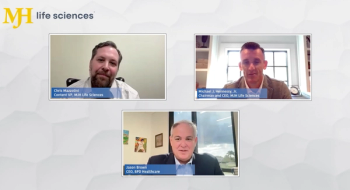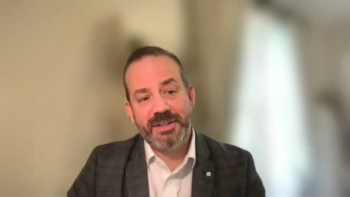
The Clinical Divide: Preventing Damaged Reputations In Healthcare
Do the American Cancer Society's questionable partnerships damage its reputation?
The reason I am wearing purple on the show today is because we are recognizing Pancreatic Awareness day this month. Just last Friday in fact. These awareness campaigns can do a lot to promote new research and treatments. However, not all organizations have patients’ best interest in mind.
In what ways does healthcare suffer when respected academic advocacy groups partner with organizations with questionable reputations or intentions? Is the increased fundraising worth the reputational damage? Do these types of associations undermine the mission of previously respected organizations? Is there anything that physicians and hospital executives can do to advocate for patients and advocate for their needs?
Welcome to the Clinical Divide. I’m Dr. Kevin Campbell, I’m a Duke-trained cardiologist and I’m the CEO of the health data startup company called PaceMate. Every week, this Healthcare Analytics News™ video series examines healthcare technology and medicine’s top news. I really try to bring you the views that help physicians and healthcare executives deal with complex issues and bridge the clinical divide.
Let’s begin with a scandal involving the American Cancer Society (ACS). This week’s story is all about the ACS, which is a very prestigious health organization that boasts a mission statement of: “To save lives, celebrate lives, and lead the fight for a world without cancer.” However, unfortunately news broke earlier this month that a high-ranking executive with the ACS resigned after more than a decade of service to the organization. Why? Because of several questionable fundraising partnerships that were struck by the ACS under his leadership.
Dr. Otis Brawley declined to discuss why he left the organization with reporters when asked. But details of the former chief medical officer’s departure have since come to light and were in fact featured in last week’s New York Times. Here’s what we know, and I’m going to tell you what I think.
The ACS has partners with companies like a supplement hawker called Herbalife International, a fast food joint, Long John Silver’s, and a provocative and sexually explicit pub chain known as the Tilted Kilt. We’re talking about direct donations, joint fundraising efforts — things that benefit the ACS but also link it with organizations that aren’t exactly health-focused, and don’t exactly represent our views. Some of these organizations have reputations of objectifying women and promoting consumption of unhealthy foods and unproven therapies that are unregulated by the FDA.
The big worry is that these partnerships could undermine the work of the cancer group, and it could give patients the wrong idea. In addition, the reputation of the ACS, I believe, could suffer significantly. As I tell my teenager, we are often judged based on who we associate ourselves with, whether it’s our fault or not.
So, let’s break this down. For one, you’ve got an organization that’s dedicated to fighting cancer, and it’s linking arms with controversial companies like Herbalife. The last thing we want patients to know is that Herbalife’s products fight cancer — or that the ACS endorses Herbalife. These are unproven therapies, there’s no randomized control clinical trials, they’re completely unregulated by the FDA, and really of no benefit that we can prove. The same goes for Long John Silver’s fried shrimp and the Tilted Kilt beer being served by scantily clad women. Probably not a great partnership for the ACS to have.
There’s also conflicts of interest. If a group like the ACS is beholden to these unhealthy or controversial companies, can it really be doing its best to fight cancer as its mission statement says? Isn’t public awareness of the cause and risk a major part of the battle against cancer? By partnering with these particular companies, the ACS is also elevating them to a new level.
Finally, it’s just bad for patient trust. What are they supposed to think if prestigious healthcare groups are teaming up with shady companies like Herbalife? You can read the financial pages and learn more about their practices.
Unfortunately, this problem is ultimately going to land in the laps of doctors and healthcare executives. We have to deal with the fallout. We must work together to remove any apparent conflicts of interest in our own organizations and we must establish very clear guidelines that govern fundraising efforts and partnerships, with our patient and our credibility at the top of mind. And we’ve got to double down on our patient education efforts, so that we can really clean up the messes that are made by other organizations, like the ACS. We need to ensure that no patient will believe that an unproven natural supplement can cure their cancer — even if that means leaving money on the table.
Ultimately, we as doctors and executives must decide which organizations we will support. Organizations such as the ACS and others depend on the support of researchers, scientists, doctors and hospitals. If we stand up and refuse to associate ourselves with them when they make poor partnership decisions such as in the case of the ACS, they’re going to have to listen.
So, thank you again for joining me The Clinical Divide, and I am signing off. Dr. Kevin Campbell here for Healthcare Analytics News™. Join me next week where we'll tackle another very controversial issue.
Navigate the digital transformation with confidence.
Binge Some Clinical Divide






































